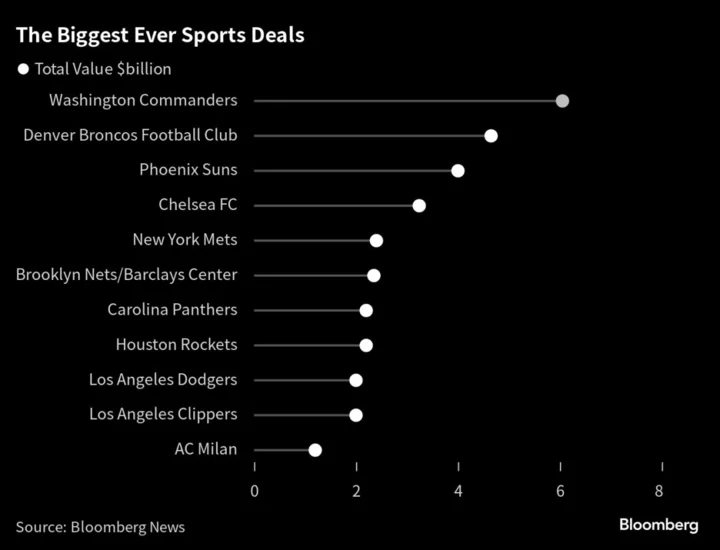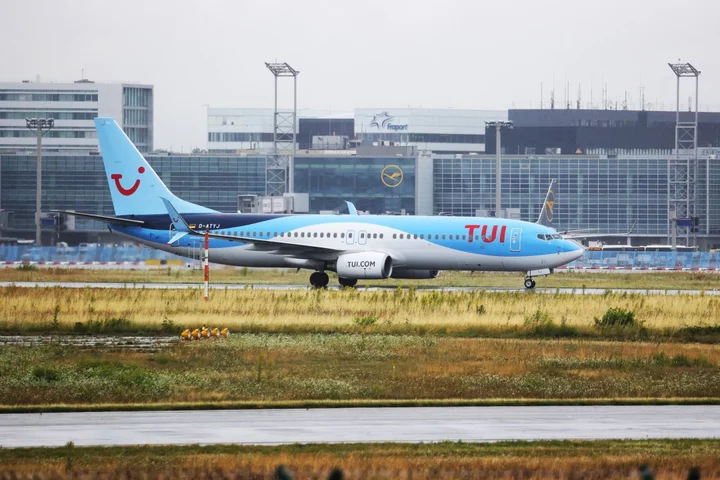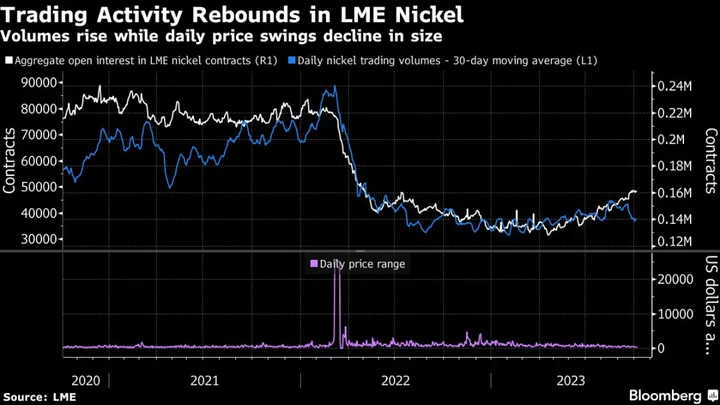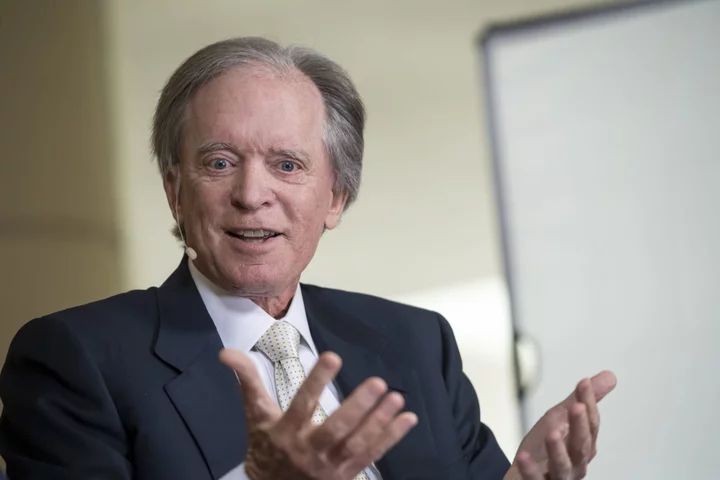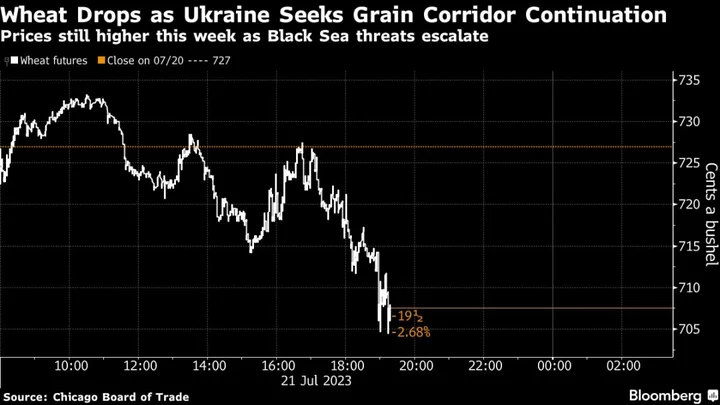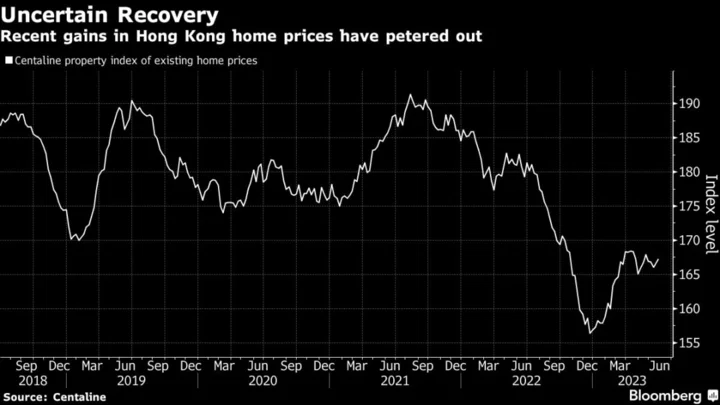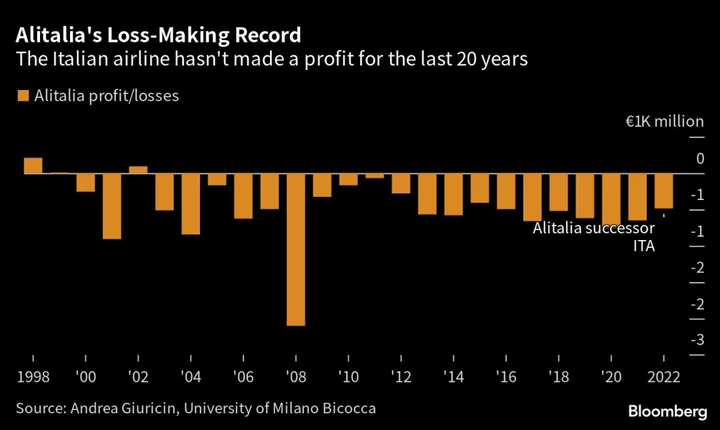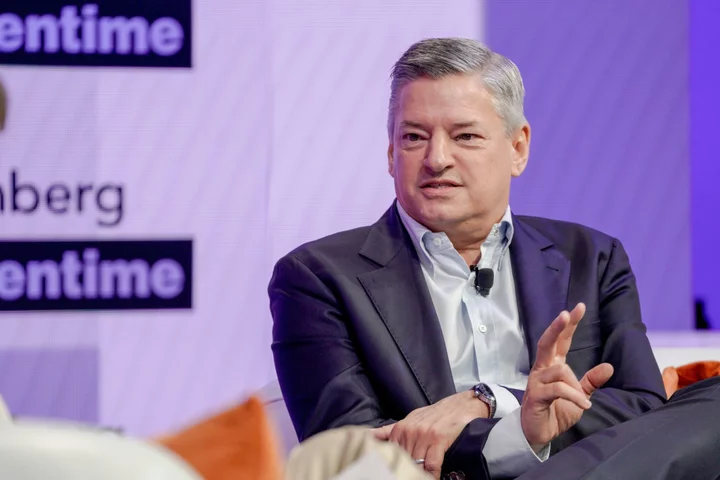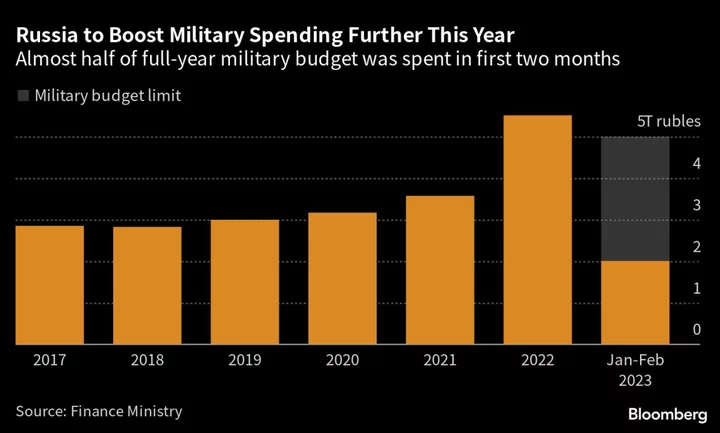Dressed in the gray suit of a private equity boss, but with a rose-tinted button-down shirt and a Washington Commanders lapel pin, Josh Harris said everything a new sports team owner is expected to say.
At a press conference following the approval of his $6 billion takeover of the National Football League franchise, Harris talked about growing up in Chevy Chase, Maryland, rooting for the once-mighty team. He promised to change the culture of an organization shadowed by allegations of harassment. He said he had a responsibility to a community that celebrated three Super Bowl titles in decades past — but hadn’t witnessed a playoff victory in 17 years.
“This franchise is part of who I am and who I became,” said Harris, who declined to comment for this article. “It’s part of my DNA.”
Along with Harris’s seriousness and optimism, there was palpable relief from the financier and two of his co-owners, Mitchell Rales and Magic Johnson. After a months-long process, the NFL and the owners of its 31 other teams had voted unanimously to let the billionaires’ consortium take over from Dan Snyder, who had owned the Commanders through 24 years of off-the-field controversy and on-the-field futility.
The deal was the most expensive purchase to date of a professional sports franchise. It was also complex, even for the group’s seasoned dealmakers.
As co-founder of Apollo Global Management, with a net worth of more than $8 billion, Harris had forged the right connections to raise money. To back his bid, he’d arranged to receive capital from Arctos Sports Partners and Ares Management — two of the biggest investors in sports. However, the NFL doesn’t allow private equity financing, and wouldn’t permit more than $1.1 billion in debt.
The group ended up replacing its original financing with a commercial loan led by Bank of America, according to people familiar with the matter.
Representatives for Bank of America, Arctos and Ares declined to comment.
The NFL has taken a cautious approach when it comes to bringing high finance into its inner circle. Hedge-fund manager David Tepper bought the Carolina Panthers for $2.3 billion in 2018, making him the only team owner at the time with a financial background. Now, with the value of teams soaring, America’s most popular sport is being pushed to welcome a new class of investors that has made major inroads in basketball, baseball, hockey and soccer.
NFL spokesperson Brian McCarthy said that the league’s unanimous approval of the Harris bid “should indicate how well the new ownership structure and group was received.”
Observers expect that more investment magnates will be drawn to sports. Another franchise with a storied past and a recent history of setbacks — the Premier League’s Manchester United — is likely to fetch a price in line with what the Harris group paid for their piece of the NFL.
In time, the Commanders deal could look like a bargain.
“In five years they are going to feel that they were incredibly lucky to get it for $6 billion” said Marc Ganis, president of the consulting firm Sportscorp Ltd.
Now, with five weeks until the NFL’s regular season opens, Harris has to begin to restore a professional sports icon.
Super Pumped
When Harris left the meeting where NFL owners approved his bid, he called a Washington radio show that was broadcasting from a brewery.
“I’m super pumped,” he said. “It’s a great day for Washington football, and I’m ready to get to work.” He offered to buy everyone in the bar a beer.
The urge to celebrate was understandable. Throughout the sale process, there were fears Snyder could decide not to sell, or that Amazon.com Inc. founder Jeff Bezos, who also owns the Washington Post, could swoop in with a higher offer (Bezos ultimately opted against jumping in). Those factors, as well as the need to make the NFL comfortable with Harris’s large group, which also includes some silent limited partners, had all worked against the bid, according to people familiar with the matter who asked for anonymity to discuss private material.
The NFL has traditionally preferred that teams have more concentrated ownership. Many are held by families like the Waltons, the Walmart heirs who last year bought the Denver Broncos for $4.65 billion. League rules require a principal owner to have at least a 30% stake in their team.
Harris owns more than 30% of the Commanders. Rales, who made his fortune designing and selling medical and industrial equipment, holds nearly 13%, while basketball legend Johnson controls 5.5%, according to a person familiar with the matter.
A representative for Harris declined to comment on the size of its members’ individual stakes.
The consortium made much of its pitch about its members’ love of the team. Harris has said that one of his earliest memories is of watching Super Bowl VII in 1973, when a field-goal attempt by Miami Dolphins kicker Garo Yepremian was blocked and Washington cornerback Mike Bass picked up the resulting fumble and returned it for a touchdown.
“He threw his hat in the ring mostly because he’s originally from DC and has a lot of loyalty to that area,” said Art Rooney II, owner of the Pittsburgh Steelers. Washington “was once one of our premier franchises and I think he’s determined to try to restore that.”
Buyers of flagship sports teams often boast of being lifelong fans. Like Harris, Snyder grew up near Maryland, and also touted his love of Washington football from day one. “I’m a fan, a huge fan,” he said at his first press conference as owner in 1999. “It’s that simple.”
Yet the relationship between Synder and the fans soon soured. The franchise had just six winning seasons in 23 years, and only two playoff victories, the last in 2006. He came under increasing pressure to sell amid sexual-harassment claims by female employees and alleged financial misconduct.
“It didn’t quite get to that point of what I would call a forced sale,” said Rooney. “Certainly there was some pressure to it.”
Some NFL owners feared Snyder, who once vowed never to sell, would back out at the last minute, according to a person familiar with the negotiations. In the end, he walked away with a rich return on the total $1.6 billion he’d spent to acquire the team and later buy out other stakeholders in 2021.
Snyder said in a statement upon the approval of the sale that he was proud of building a diverse organization and grateful to the team’s fans.
New Address
Harris, who also holds stakes in the NBA’s Philadelphia 76ers and the NHL’s New Jersey Devils, will now need to put a winner on the field. The team has lost in the first round in each of its last four playoff appearances. He’ll also be faced with discontent over the team’s recent name change; some 41,000 fans have signed an online petition to change it back.
The new ownership has “an opportunity to be really methodical about the big projects that they take on,” said Jon Schwartz, a former senior vice president of communications at the NFL. “Whether that be a new stadium or a potential name change, those are both messages to the fan base.”
The team plays at the 25-year-old FedEx Field in Landover, Maryland, where it is under contract until 2027. Yet a potential search for a new home has already set off maneuvering in Virginia, Maryland and the nation’s capital.
Virginia Governor Glenn Youngkin, who like Harris spent most of his career in private equity, has said he’s ready to pitch a new stadium in his state. Johnson met earlier this year with Maryland Governor Wes Moore, and last month, bipartisan legislation was introduced in the US Congress to revitalize the RFK Memorial Stadium in Washington, D.C., the team’s old home. Mayor Muriel Bowser praised the legislation and said the city is studying the “funding mechanisms to support the goal of maintaining, expanding, and attracting sports in DC.”
The team hasn’t indicated that it is leaning toward any particular area.
Though the Commanders’ rebuild is expected to take time, NFL insiders say they are relieved.
“If I’m the NFL commissioner, our league is only as strong as our weakest link,” said Mike Tannenbaum, the former general manager of the New York Jets. “You don’t want your weakest link to be in Washington, D.C.”
Coming soon: Sign up for Bloomberg’s Business of Sports newsletter for the context you need on the collision of power, money and sports, from the latest deals to the newest stakeholders. Delivered weekly.
--With assistance from Amanda Albright and Liana Baker.
Author: Kamaron Leach, Ira Boudway and Randall Williams

